8 Inspirational Product Configurator Examples
Explore a range of product configurator examples from various industries that will help you understand the power of online product configurators.

Enterprise-level businesses require scalable and feature-rich eCommerce platforms in order to manage their operations, engage customers, and drive revenue gains. In 2023, several eCommerce platforms — including Magento Open Source/Adobe Commerce, Shopify, BigCommerce, and more — stand out as leaders in serving the unique needs of large-scale enterprises.
When it comes to enterprise-level eCommerce, the platform needs to have the capabilities to handle high traffic and extensive product catalogs — but it also must offer robust features and integrations that give businesses an edge in a competitive market.
In this guide, we will explore these top platforms, highlighting their key features, strengths, and other important takeaways. Additionally, we will discuss essential factors to consider when selecting an enterprise eCommerce platform for your business, as well as highlighting emerging trends in the field.
Before delving into the specific platforms, let's take a moment to discuss the critical factors that businesses should consider when selecting an enterprise eCommerce platform.
Scalability is a fundamental requirement for any enterprise eCommerce platform. As your business grows, the platform must be able to accommodate large increases in visitor volume, number of products, complexity of products, number of transactions, and concurrent users without sacrificing performance.
Since scalability pertains to the platform's efficiency at processing lots of data in an efficient manager, look for platforms that offer flexible scaling capabilities, like expandable product catalogs and product pages, that help ensure a scalable shopping experience for customers. A lot of this weight falls on the hosting infrastructure that supports your chosen platform, so be sure to select one that can handle your current traffic and future prospects.
Enterprise businesses often have unique requirements that demand a high degree of customization. A suitable platform should offer extensive customization options — such as intuitive user experience (UX) and checkout processes — allowing you to tailor the entire experience, design, and functionality to align with your brand's identity and goals.
Seek out customizable design elements for greater competitive advantage and engagement opportunities, such as bespoke functionality for targeting your ideal customer profile and supporting them from product discovery to checkout and beyond. Many platforms offer extensive custom integration opportunities with both internal and external systems, such as your ERP or a preferred marketplace.
Integration capabilities with other business tools and systems is crucial. Enterprise businesses typically have a technology stack that depends on several key technologies. These platforms often include:
Integrations between these platforms and your eCommerce solution can provide substantial improvements in operational efficiency through shared data and automation.
Now, let's explore the eight best enterprise eCommerce platforms of 2023, each offering a unique set of features and capabilities to cater to the needs of large-scale businesses.
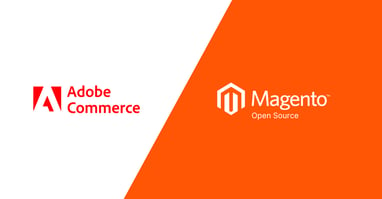
In 2018, Adobe took over the brand Magento and adopted its open source codebase as the foundation of what became Adobe Commerce Cloud. Magento Open Source continues to exist today and is supported by both Adobe and the Magento community that has been built up since Magento’s launch in 2008. Adobe Commerce Cloud gets more attention and dedicated support from Adobe with the latest and greatest functionality that is not always available on Magento Open Source.
With extensive feature sets, including advanced catalog management, flexible pricing options, and powerful security tools, Adobe Commerce Cloud and Magento Open Source help businesses create unique shopping experiences for targeted audiences.
Since Magento Open Source is self-hosted, you get an additional degree of control by being able to manage your own eCommerce infrastructure. For businesses that want a unique or customizable store, Magento Open Source and Adobe Commerce Cloud are excellent choices.
Some enterprise businesses that use Magento/Adobe Commerce include T-Mobile, Coca-Cola, and Krispy Kreme.
Features and Highlights:

Shopify is known primarily for its simple and affordable eCommerce solution for small businesses. However, Shopify has continued building out various aspects of that platform to meet the needs of larger and larger businesses — Shopify Plus is the result of these efforts. Shopify Plus has gained some traction in the enterprise eCommerce space thanks to its user-friendly interface and extensive app ecosystem. The platform offers a good balance between ease of use and powerful features, making it a strong option for businesses aiming to streamline their operations.
More than anything, Shopify Plus is known for its ease of use and cost-effectiveness. While not suited to enterprise businesses with deep customization needs or a highly complex product offering or purchase process, Shopify Plus is a quick way to launch a digital commerce channel for enterprise businesses with relatively simple needs.
Some enterprise businesses that use Shopify Plus include Allbirds, Ruggable, and Brooklinen.
Features and Highlights:
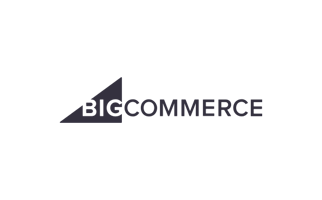
With a special focus on performance and flexibility, BigCommerce Enterprise offers a range of features and dedicated support to drive growth and expansion. BigCommerce offers a library of built-in features instead of relying on third-party apps and integrations — though not as many as Shopify and Magento/Adobe Commerce.
Where BigCommerce truly shines is its flexibility with the platforms and tools you integrate with — providing intuitive built-in UI but while allowing for a bit of the payment processor, shipping platform POS, or subscription engine you want to use.
Some enterprise businesses that use BigCommerce include ChapStick, Skullcandy, and Mrs. Meyer’s Clean Day.
Features and Highlights:
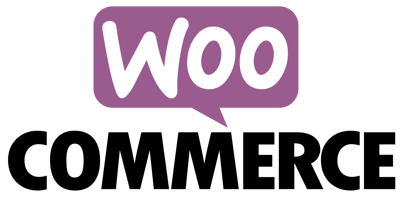
WooCommerce, a plugin for WordPress, has evolved into a major enterprise eCommerce solution. With its extensive plugin library and no limit on both features you can add and products you can sell, WooCommerce is a flexible solution that fits into almost any strategy — especially for stores with large product catalogs or lots of customization.
Compared to many other platforms, WooCommerce carves out its spot by being very cost-effective. If you’re willing to trade a bit of support, you’ll find an inexpensive and flexible solution for your business.
Some enterprise businesses that use WooCommerce include Weber, Yoast, and Tonal.
Features and Highlights:
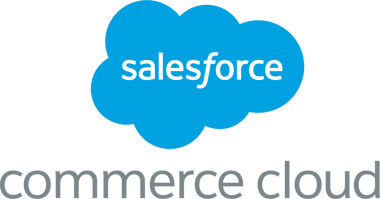
SalesForce started as a CRM sales tool and over time has built out its offering by acquiring various platforms. In the eCommerce space, SalesForce purchased Demandware and linked that platform together with other acquisitions such as Mobify, ExactTarget, Steelbrick, and Lightning. As a result, SalesForce Commerce Cloud delivers a comprehensive suite of tools for enterprise businesses looking for a cloud-based eCommerce platform ready integrated with other enterprise solutions. Commerce Cloud uses AI-powered personalization and data-driven insights.
Many enterprise-level businesses either already invest in or are curious about international expansion — and this is where Salesforce Commerce Cloud shines. It also excels in terms of scalability, making it a strong option if you don’t mind an expensive price tag.
A few major businesses using Salesforce Commerce Cloud include Adidas, Madewell, and Crocs.
Features and Highlights:

SquareSpace Enterprise offers elegant design templates and deep levels of support for creating sharp online stores. While it may be mainly known for its website builder, SquareSpace also caters to the enterprise eCommerce segment. Like BigCommerce, Squarespace also boasts a 99.9% platform uptime figure.
If having an impressive-looking and well-designed store is important for your business, SquareSpace might be the solution for you. Since the platform has a focus on building websites, it also includes a built-in suite of tools for SEO to make it more discoverable to potential customers.
Some major businesses that use SquareSpace Enterprise include Colgate, Menards, and Vanguard Properties.
Features and Highlights:
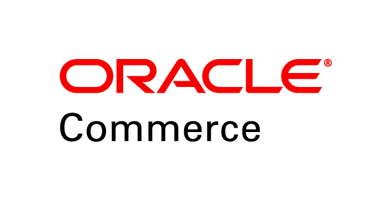
Oracle Commerce is a comprehensive solution designed to help businesses connect their customer and sales data from CRM systems with financial and operational data. Similar to Adobe acquiring Magento, Oracle purchased NetSuite in 2016 and wrapped that platform into its eCommerce offerings as Oracle Commerce. With a focus on integration and quick functionality, this platform helps businesses simplify their eCommerce ecosystem.
Oracle Commerce is hosted on the Oracle Cloud — giving you access to automatic updates, a library of extensions, and deep security controls. If that level of synergy is appealing to your brand, Oracle Commerce is an excellent option.
Enterprise businesses that use Oracle Commerce include Delly’s, Webcontinental, and Banco Nacional.
Features and Highlights:
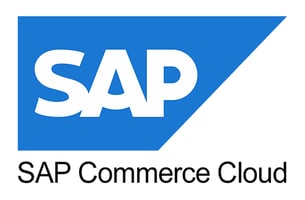
SAP Commerce Cloud, formerly known as SAP Hybris, is a cloud-based eCommerce platform that serves businesses of all sizes. SAP Commerce Cloud offers real-time personalization capabilities with real-time insights to help with recommendations and more. It also allows for comprehensive product and order management for B2B, B2C, and even B2B2C businesses.
One of the biggest selling points for SAP Commerce Cloud is its built-in insight capabilities for enterprise businesses, including integrations with SAP ERP, SAP S/4HANA, and third-party systems. According to SAP, these capabilities help lower your total cost of ownership — helping the platform meet your budget needs while providing the insights necessary to create a compelling customer journey.
Some major sites that use SAP Commerce Cloud include Invacare, Carhartt, and Thyssenkrupp Material Services.
Features and Highlights:
As technology and consumer behavior continue to evolve, several emerging trends are shaping the future of enterprise eCommerce. While these trends might not all be specific to enterprise-level businesses, these brands may have more resources to invest in these trends and implement them on a larger scale.
The eCommerce space is no longer just for retailers or direct to consumer manufacturers. Enterprise businesses selling to other businesses (B2B) can now implement digital technologies to satisfy even their most complex sales and marketing workflows.
AR/VR is becoming increasingly popular in eCommerce, as it allows customers to visualize products in their own homes or businesses before they buy them. For example, IKEA allows customers to use AR to see how furniture would look in their living room, and Wayfair lets customers use VR to walk through a virtual model of a home.
Subscription models are becoming increasingly popular in eCommerce, as they offer customers a convenient and affordable way to get the products or services they need on a regular basis. For example, Dollar Shave Club sells razors and shaving cream on a subscription basis, and HelloFresh delivers meal kits to customers' homes on a weekly basis — both with massive financial success.
Marketplaces have gained popularity as a way for enterprise businesses to generate additional revenue and grow their customer base. By allowing other vendors to sell their products on their marketplace, enterprise businesses can tap into a wider range of products and services to offer their customers. This can make their marketplace more attractive to customers and lead to increased sales.
In addition, enterprise businesses can earn commission fees from each sale that takes place on their marketplace. This can be a significant source of passive income for enterprise businesses.
Social commerce is another trend that is growing in popularity. It allows customers to buy products directly from social media platforms, such as Facebook, Instagram, and Pinterest. Social commerce is a great way for businesses to reach a wider audience and to promote their products to people who are already interested in them.
Finding the right platform is essential for your business to thrive. Consider your specific needs — such as scalability, customization, and integration capabilities — when evaluating potential platforms. Magento/Adobe Commerce, Shopify Plus, BigCommerce Enterprise, WooCommerce, SalesForce Commerce Cloud, SquareSpace Enterprise, and Oracle Commerce stand out as leaders in the enterprise space, each offering their own benefits to meet enterprise-level businesses where they are. By carefully considering your business requirements and staying attuned to emerging trends, you can make an informed decision and select the best enterprise eCommerce platform to drive your business forward.

Explore a range of product configurator examples from various industries that will help you understand the power of online product configurators.
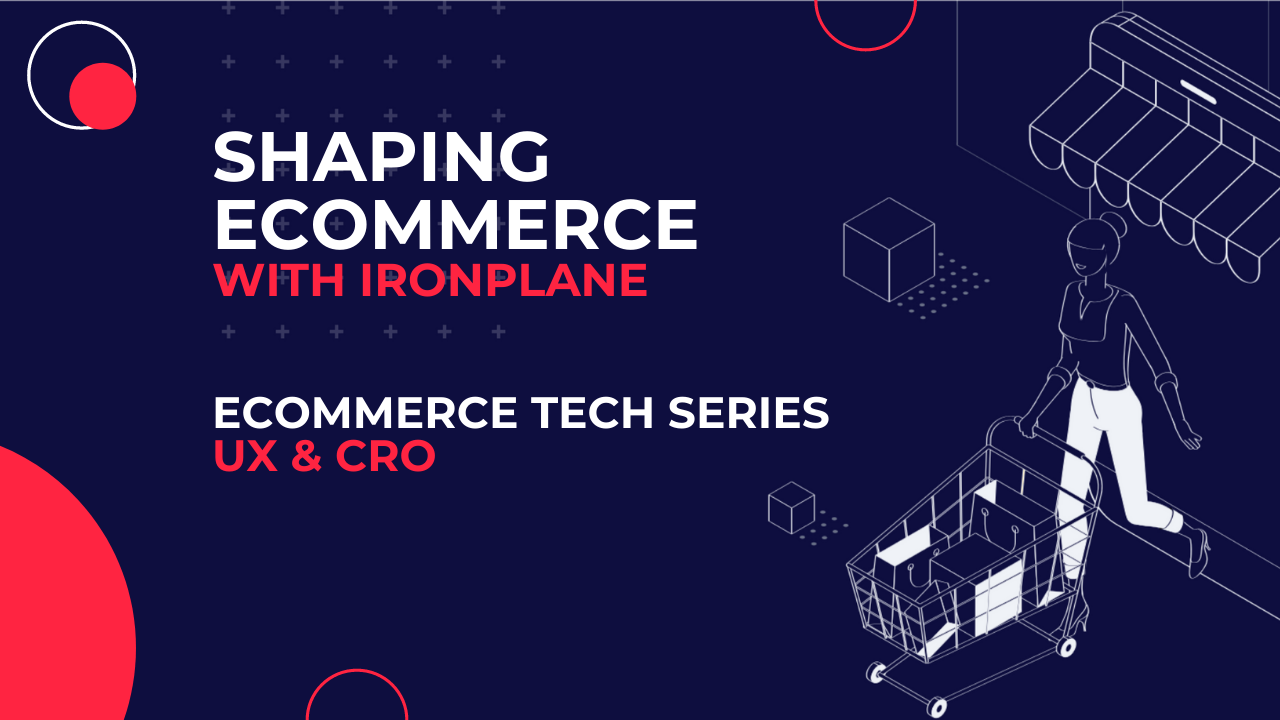
In Episode 6 of our eCommerce Tech Series, our team discusses user experience (UX) and conversion rate optimization (CRO) and offers insights into the critical components of the UX process for eCommerce development.

Picking the right eCommerce development partner is really important for your online store to do well. This guide will help you find a good match for what your digital store needs.